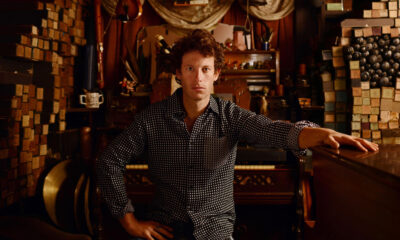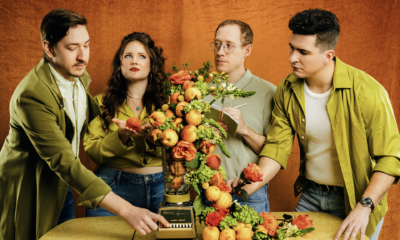Interviews
Interview with Alisha Turull of In De Goot Entertainment
Alisha Turull started out in the music business by playing instruments. Quickly though her focus on music would redefine what she wanted her career goals to be: working behind the scenes in the music industry and helping her clients to become rockstars. Turull started her career while in college in her school’s radio station, then joined the heavy metal artist management company, Heavy Hitter. Now she’s the Executive Assistant to CEO Billy McGathy at In De Goot Entertainment (a company that manages artists such as: Shinedown, 10 Years, Adelitas, Way, Black Stone Cherry, Chevelle, Halestorm, In This Moment, Neon Trees, Sevendust, and Theory Of A Deadman). PureGrainAudio had some time recently to talk to Turull and this is what she had to say.
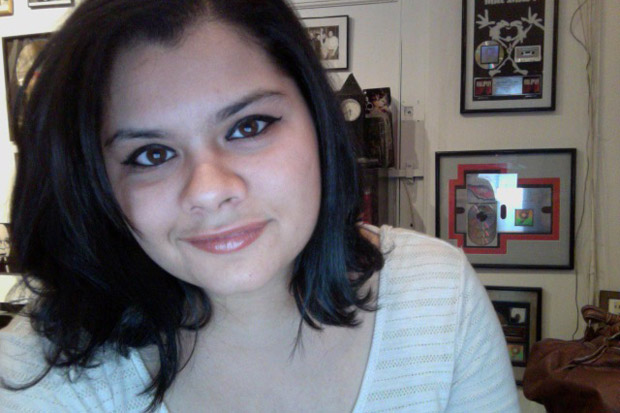
Alisha Turull started out in the music business by playing instruments. Quickly though her focus on music would redefine what she wanted her career goals to be: working behind the scenes in the music industry and helping her clients to become rockstars. Turull started her career while in college in her school’s radio station, then joined the heavy metal artist management company, Heavy Hitter. Now she’s the Executive Assistant to CEO Billy McGathy at In De Goot Entertainment (a company that manages artists such as: Shinedown, 10 Years, Adelitas, Way, Black Stone Cherry, Chevelle, Halestorm, In This Moment, Neon Trees, Sevendust, and Theory Of A Deadman). PureGrainAudio had some time recently to talk to Turull and this is what she had to say.
So tell me about yourself.
Alisha: I settled onto the realization that if I couldn’t perform, then I’d promote so in my teenage years leading into college I actively worked in my local scene, working at venues and helping promote bands on top of getting involved in College radio. Working the airwaves and managing the operations of my college station for two and half years before graduating and starting in the music industry.
How did you get started in the music industry?
Alisha: Like many of my peers in the business I started my networking while in College and operating my school’s station WRKC / Wilkes-Barre as a program director before being promoted to station manager. At one point we lost our metal/loud rock director so during the interim I took the reins as there were very few metalheads in the station. Problem is – I never left the position and didn’t mind one bit. On a weekly basis I was managing the music rotation of relevant artists being promoted by various labels and boutique indie promotion companies while speaking to my promo contacts each week. It was there I established and harbored great business relations which helped me later on down the line to get my foot in the door, pick up job interviews and finally make my mark working in the industry. Starting at the boutique radio promotions/management firm Heavy Hitter Inc., I was there for four years before branching out and happily working at my current location In De Goot Entertainment.
You work for a vertically integrated company with artist management and radio promotion divisions. Tell me about that.
Alisha: In De Goot Entertainment is a premiere company in the business serving the roles of management, radio, new media, tour marketing and everything in between. In the vision and 30+ years experience of CEO and Founder, Bill McGathy, we strive to super serve the needs of our artists on our management roster and work in conjunction with their respected labels to ensure maximum awareness from all mediums which translates to meaningful airplay and a bigger fan base for our artists in a national and international spectrum. It’s always instilled in us that as any good team of players should, we aim for the success of our artists first and foremost.
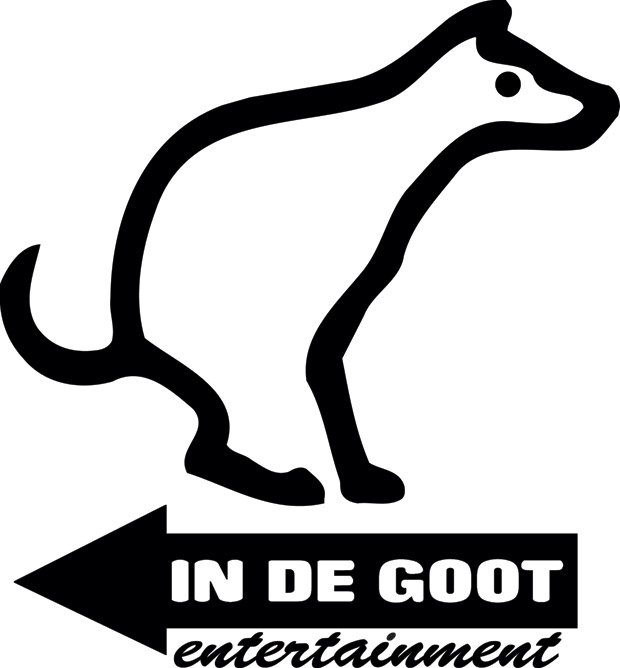
Does In De Goot sign artists or sign songs or both?
Alisha: To my knowledge we primarily sign artists that are either developed nationwide acts or we work with a band and develop them from the ground up.
From an artist management perspective, what are the entry points you use to market an established as well as developing artist?
Alisha: In my current position at In De Goot I don’t work as an artist manager, but more so assist their needs as best possible. What I can say though through observation of our management department and from my former position at Heavy Hitter in mgmt. you need to begin with the foundations and branch out; established or developing. That begins at the base of promotion with radio, publicity and touring. We see and know the potential our artists have in making waves, but it’s up to the fans to push them to that next level. With creative marketing tactics available at live shows, on the radio or on the Internet it’s the voice of the audience that can carry the life of an album for years to follow.
From a radio promotion perspective, what are the entry points you use to market an established as well as developing artist?
Alisha: With radio promotion you start directly at the source and take it right to the market’s main commercial and tertiary radio stations. It usually begins with promoting an album single to the markets and letting them gather their initial impression of the artist. From there, the use of radio tours, unique out-of-the-box contesting, and audience interactive feedback is what aids the sustenance needed to keep a single active on the airwaves before transitioning into a second or third single.
For an unknown artist, how do you develop them?
Alisha: I can recall from my time at HH that developing an artist is both a rewarding and tough experience and comes with both patience and perseverance. First and foremost we want to cater to the vision and expectations of the artist so once we’re on the same page with who they want to present themselves as and where they want our guidance and aid, we reach out to our network of labels (if unsigned) and media outlets in print, Internet, and radio to establish and foster those relationships for the artist and begin spreading the word on them. It naturally follows that with a polished production of a full length album, exposure on tour solid and relevant headliners and great support coupled with interviews, reviews and feedback from publicity outlets, the life of an artist begins to take hold from there.
Check out Shinedown’s song “Simple Man”
Is touring and long-leading publicity the best approach for marketing an unknown artist as oppose to using radio as an entry point?
Alisha: I firmly believe that like railroad tracks, a train and it’s conductor, one really can’t function without the others; umm think of them as the Legend of Zelda’s Triforce if you will as they all serve as an ensemble. Logically you can see an artist on tour who sounds amazing on the album, but performance wise they carry no energy or they’re inaudible to hear. That’s where the review of a prestigious magazine, and that top ten countdown slot of that disc jockey’s show pushes the fan to give them a chance. Or in an alternate scenario, the bands kills it on stage, but above stated prestigious magazine gives them a less than glamorous review because it’s a sub-genre they’re not all too familiar with. Radio will let you make that decision on your own with an A rotation playing that song 5-6 times in a prime time rush hour slot and an exclusive contest to win tickets to see them play live in a market near you. As a unit, each entry point assists the other in getting the music out to the demographic.
When PD/MDs did not want to play your song, how did you persuade them that they should?
Alisha: Well I learned very early on in the beginning of my career that you can never please them all and you can never EVER force an artist or music down a PD/MD’s throat. That strains the relationship between promoter and station and can carry long term consequences later on down the road. So you have to get your creative juices flowing. One of the things that I’ve always loved about marketing and promotions is brainstorming and developing unorthodox ideas and campaigns out of the norm to present to the format in an effort to view the artist in its essence. You can always take the traditional route and shoot out CDs for giveaways, station liners, t-shirts or interview time slots which we did, but we always enjoyed taking a twist and making the artist someone “easy to remember, and hard to forget”.
One story I immediately think of is with a Philadelphia based band called Gloominous Doom on DRP Records. Their sound was unique as it melded thrash, with reggae coupled with ska which as crazy as it sounds they pulled it off flawlessly; even during their live shows. They were a developing artist and it was hard to get to get people to focus on them because at that time of new releases bigger legendary acts were dropping new albums. One station in particular had a difficult time with it and for myself it was my goal to connect the band to the station. A well known factoid about the band was that the lead vocalist had a prosthetic leg due to complications in his youth and so during a popular song on their set, he would take it off to use as a cowbell. I somehow convinced the band to donate a new prosthetic leg to be autographed as part of a prize pack with t-shirts and albums to one of the station’s primetime shows as an on-air giveaway and with it the station was both surprised and excited to push the airplay for the contest which in turn generated new fans to the artist and new heads at their shows. Like I said – unorthodox and out-of-the-box concepts.
What if an artist you are promoting at radio is not impacting in even any of the smaller markets at radio, what do you do?
Alisha: Sometimes those challenges were presented to us at HH and while it’s not at the fault of the artist or the station, they just didn’t fit. In trying times like that, we usually coordinated our best efforts to get the word out and would reach out to our neighboring friends in the online forum. Sometimes we’d touch base with online sites that generate tons of unique impressions each month to see if we could set up an interview with an exclusive song stream, or a contest online to get the exposure out on the artist. More often than not though, the band could sound heavy and not be heavy enough for our format at that present time so after a grueling campaign we would refer said artist to another promotions company in a different format in hopes that they would see the success and airplay they deserve.
Check out Black Stone Cherry’s song “White Trash Millionaire”
It seems like with the consolidation of radio, the radio industry is facing similar challenges to what the record industry faced. As a result, streamlining their organizations and doing more with less, so do listeners of a commercial formatted station suffer with a lackluster final product?
Alisha: That’s a great question. I think when looking at the current economy as well as businesses within the industry slimming down some I don’t believe that this would in anyway give consumers and/or listeners a lackluster final product. In today’s market, businesses and companies from both the industry and the commercial station’s end are adapting to the change that new and effective technology is serving to do the job that once took 2-3 people hours to do. What a lot of people don’t realize is that this consolidation is not a shock to the industry either – it’s always been changing in one way or another whether it be in big or small increments. From the perspective of the outside looking in, this industry has evolved as such for decades to mold with our surrounding environment in an effort to maintain survivability. In many respects (and I think that many of my peers in the business will agree with me on this one) it’s offering us the challenge of not only honing in on our specialized strengths, but learning to effectively be more well rounded in our skill set as a jack-of-all-trades thus making us a commodity with a wealth of knowledge and a lot to offer to any future endeavors.
What are the weaknesses and threats of radio including terrestrial, online, and satellite?
Alisha: The all too common misconception that music fans hold is that radio is dead or a dying format. I giggle incessantly at that comment because truly – radio will never die; it will only ever evolve. Like eight-tracks are to iTunes MP3s, and LaserDiscs are to Blu-ray discs, terrestrial radio is now making the advance to online and satellite. I don’t honestly believe it holds a weakness. If anything what you’re seeing now and in a rapid pace in radio is a lot of business conglomeration and a lot broadcasting companies merging under one imprint in the same fashion record labels have been doing for years. If major labels can flourish and survive under these adjustments, I have to ask why can’t radio?
With the proliferation of digital distribution streams in the future, do you think that terrestrial radio will be dead?
Alisha: I’m going to be honest in that I had to sit and think carefully as to how I wanted to answer this. Coming from a generation raised on terrestrial radio I don’t believe it will be dead. As stated earlier with the evolution of radio satellite and online radio are on the rise, but I keep in memory that not every consumer has satellite radio in their car for the work commute, and not everyone has 3G to blast Pandora on their smartphones while working. Thus terrestrial still serves as an immediate source to music and is easily obtainable no matter where you go. I also still firmly believe that in the music industry terrestrial radio will remain as a go-to aid for an artist in gaining exposure. Many of the acts I have had the pleasure of working for have gotten their big break thanks in part to terrestrial radio so as it appears that terrestrial may not hold relevance to digital it’s still a silent majority in getting the word out there.
What is the future of radio in relation to promoting artists?
Alisha: Radio will always remain a core component into promoting an artist. It’s the easiest and fastest way to get awareness out to the listener. When coupled with touring and publicity as stated above, radio is the megaphone that makes our promotion all the more effective. I know that for HH in the past and currently at IDG we feel strongly that radio is part of the backbone in building our artists and circularizing them. It’s remained that way for decades in this company and I don’t believe we intend on ever changing in that mindset.
Check out Chevelle’s song “Face To The Floor”
What are some album cycles that you are really excited about to work on and why?
Alisha: At the moment IDG is very excited about a lot of the newest releases impacting the airwaves and of those include Shinedown, Halestorm, Chevelle, and Neon Trees just to name a few. We’ve got a great release schedule for 2012 and with recent additions to the roster we’re excited for the masses to divulge right into it, so you’ll just have to keep your eyes peeled and stay tuned! 🙂
What is the greatest lesson you have learned so far in your career?
Alisha: When working for a veteran of the industry much like Bill McGathy is, hearing his anecdotes and stories throughout the years are all life lessons and pearls of wisdom. I’m fortunate in my position that I get to work for him as he really encourages me to absorb and take everything in like a sponge. I still hold a mantra in this business that he taught me while in discussion with him saying, “Kid, in this industry you will never know it all. Each day you’ll always be learning, but that’s really the only way you’ll live and succeed in this business. Always by learning something new.”
Where do you see yourself in 5 to 10 years?
Alisha: Being in this industry for 5 years now, I’m still fairly new and very much a baby in this business. I’ve considered exploring other avenues and going back to school for entertainment law, and always humored the thought about diving deeper in to music licensing. I love the idea of getting artist XYZ out on TV shows, movies, sporting events, et cetera but those are all thoughts that have randomly popped into my head. I honestly don’t know specifically where I see myself years on down the line but I’m certain that I’ll still be heavily involved in music in some capacity while tackling a new dream as a wife or mother. It’s going to be hard but certainly not impossible.
Any final comments?
Alisha: I did want to take a second and say Thank You to PGA for giving me the opportunity to share some insight about my years in the business as this was a lot of fun. To a man I can call the Holy Grail of Rock and Roll, thank you Bill McGathy and thank you to In De Goot for taking a chance on me to assist you and keep the good tunes flowing, and to many of my peers and mentors in this business (Bambino, Jason Rudolph, Michelle Rakshys, Seth Werkheiser, and countless others) you helped mold me for the achievements I’ve conquered thus far in this business. I’d never forget that. Mom, thanks for not freaking out on me that one time you found out I was taking Silenoz of Dimmu Borgir to Sirius for an interview and thanks Sean for accepting me as both a fan of Satyricon and World of Warcraft at the same time.
Check out Neon Trees’ song “Animal”
-

 Music6 days ago
Music6 days agoTake That (w/ Olly Murs) Kick Off Four-Night Leeds Stint with Hit-Laden Spectacular [Photos]
-

 Alternative/Rock7 days ago
Alternative/Rock7 days agoThe V13 Fix #010 w/ High on Fire, NOFX, My Dying Bride and more
-

 Alternative/Rock2 weeks ago
Alternative/Rock2 weeks agoA Rejuvenated Dream State are ‘Still Dreaming’ as They Bounce Into Manchester YES [Photos]
-

 Features6 days ago
Features6 days agoTour Diary: Gen & The Degenerates Party Their Way Across America
-

 Culture1 week ago
Culture1 week agoDan Carter & George Miller Chat Foodinati Live, Heavy Metal Charities and Pre-Gig Meals
-

 Music1 week ago
Music1 week agoReclusive Producer Stumbleine Premieres Beat-Driven New Single “Cinderhaze”
-

 Alternative/Rock1 week ago
Alternative/Rock1 week agoThree Lefts and a Right Premiere Their Guitar-Driven Single “Lovulator”
-
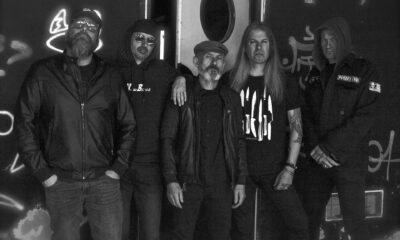
 Alternative/Rock2 weeks ago
Alternative/Rock2 weeks agoDeath Wishlist Are Fiery and Fierce with Their “I Get Bored” Video Premiere






